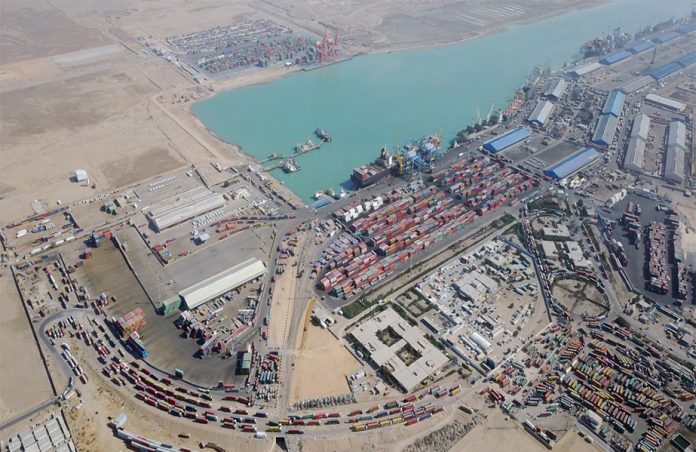‘Infrastructure sector is being developed through interest-free or government concessional loans’
‘Benefits of CPEC investments will far outweigh the outflows’
ISLAMABAD: The Ministry of Planning has said that the western media’s recent reports regarding China Pakistan Economic Corridor (CPEC) were based on “incorrect information, distorted facts and one-sided opinions of individuals.”
The ministry on Friday clarified that CPEC was a flagship and most active project of the Belt and Road Initiative (BRI), where 22 projects worth $28 billion have been actualized over the past four years.
It said the project could not be compared with Chinese investment projects in Sri Lanka or Malaysia, as frameworks and financial modes of CPEC are altogether different in nature.
“The CPEC finances are divided in government-to-government loans, investment, and grants. The infrastructure sector is being developed through interest-free or government concessional loans,” it said, adding that Gwadar Port was a “grant-based” investment, which means the government does not have to pay back the invested amount for the development of the port.
The ministry stated that energy projects were being executed under independent power producers (IPPs) mode while finances were mainly taken by the private companies from China Development Bank and China Exim Bank against their own balance sheets, therefore, any debt would be borne by the Chinese investors instead of any obligation on part of the Pakistani government.
It said Pakistan had opted for the Chinese investment under CPEC due to the favorable financing arrangements, adding that China stepped forward to support Pakistan’s development at a time when foreign investment had dried up, and economic activities were being crippled by energy shortages and infrastructure gaps.
“CPEC is not imposing any immediate burden with respect to loans repayment and energy sector outflows,” the ministry said in an official statement. “CPEC outflows would start from the year 2021 and would spread over 20 to 25 years with a maximum in the years 2024 and 2025. The resultant benefits of these investments to the Pakistan economy would far outweigh these outflows. CPEC has provided enormous opportunities for Pakistan to grow economically.”
It said CPEC was an engine for economic growth and is expected to increase Pakistan’s GDP growth by 2 per cent to 3 per cent, adding that CPEC also facilitated in overcoming crucial energy, transport infrastructure and supply chain bottlenecks.
Under CPEC, the ministry claimed, development of Gwadar would ensure strengthening of maritime sector, particularly the coastal tourism and local fishery industry, thereby benefitting the local communities.
“Pakistan has repeatedly stated that it was fully committed to CPEC, which enjoys complete consensus among all institutions and political forces in Pakistan. It is a key to the future of Pakistan’s socio-economic development. Within the broad parameters of the already approved CPEC framework, the present government, with the mutual consultation of the Chinese government, is broadening the base of CPEC,” it said. “A mechanism is being developed to include third-party participation in CPEC. Socioeconomic development and poverty alleviation are being included in CPEC and a separate working group is being established to fast track this dimension of the mega project.”
According to the ministry, Gwadar continues to be developed as a standalone project and a transshipment hub based on blue economy principles. Industrialization under CPEC has already been fast-tracked and four special economic zones would hit the ground soon, it concluded.
























